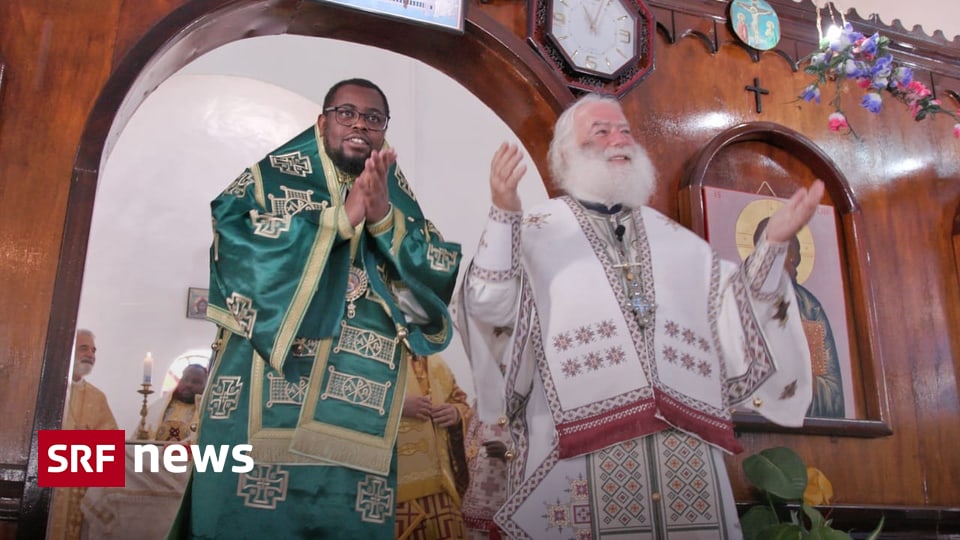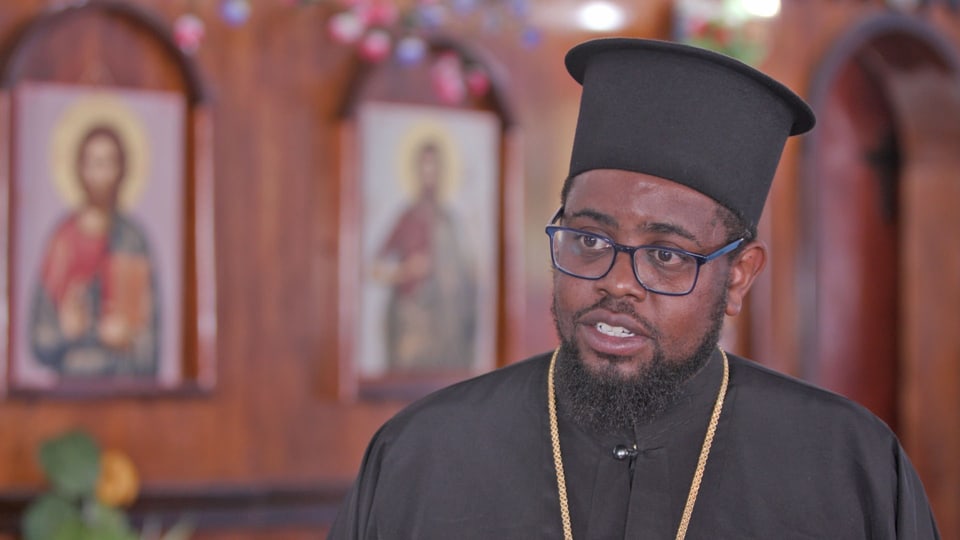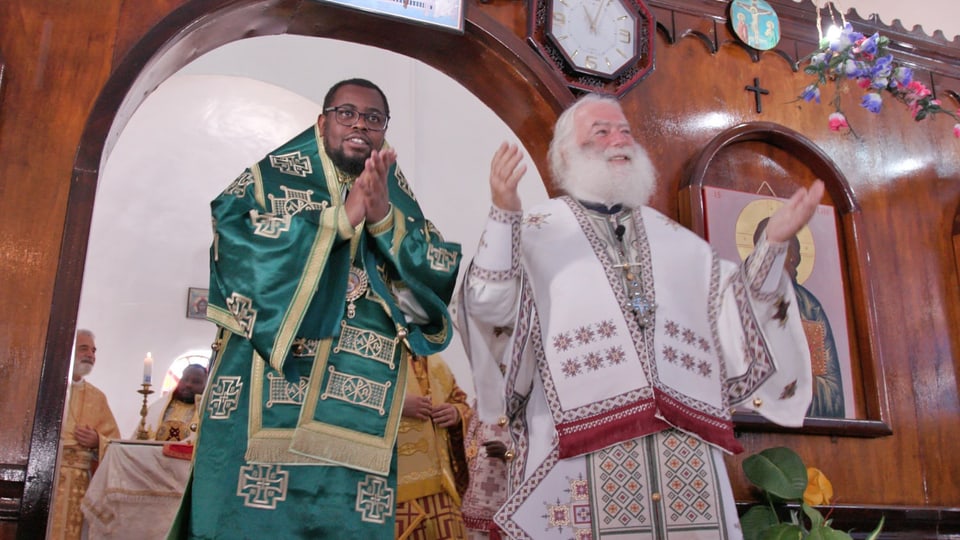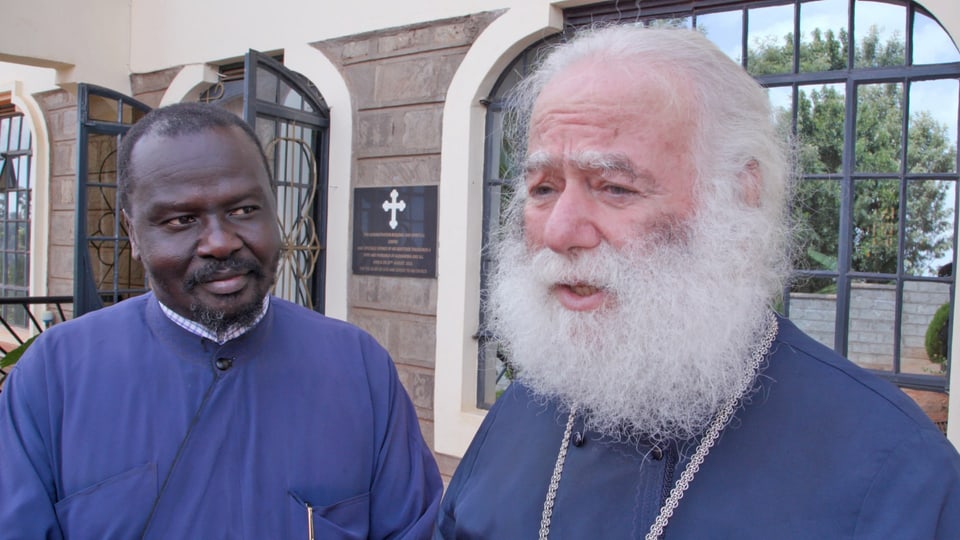
Russians are losing priests in the Greek Orthodox Church. It's about influence, money and the conflict in Ukraine.
“The apostates did it only for the money,” says Bishop Panarettos. The Kenyan churchman was furious: “Judas already betrayed Jesus for a few pieces.”
The apostates are priests of the Greek Orthodox Church who have converted to the Russian Orthodox Church. Bishop Panarettos make up one-fifth of all clergy in the Church.
More than 200 new Russian parishes
The Russian Orthodox Church has poached about a hundred priests in Kenya. Entire church communities were transformed in this way – a severe blow to the Greeks.

Purana:
Nyeri Bishop Paneretos is adamant: the Russians exploited the plight of Africans.
srf
Kenya is not the only African country where Russia's Church is expanding. “Over the past year and a half, we have opened more than 200 churches in 25 African countries,” said Russian Patriarch Kirill I at the Russia-Africa Summit this summer. The Russian Church is talking about tens of thousands of new believers in Africa.
Weather against the west
Religion is used as an instrument of power. A close confidant of Russian patriarch Vladimir Putin. In his address to African leaders, he emphasized that Africa and Russia share the same conservative values - for example in condemning homosexuality.
And the church leader speaks out against the West: “We Russians have never seen Africa as an object for profit and colonization.” Russia does not feel superior to the states of Africa.
The Roots of the Ukraine Conflict
But of course Russia is concerned with power, influence and geopolitics. The church dispute is rooted in the Ukraine conflict. The Ukrainian Orthodox Church split from the Russian Church. The Greek Orthodox Church recognizes the independence of Ukrainians.

Purana:
Great joy after the inauguration of the new bishop (left). The Greek Orthodox Church of Kenya celebrates
srf
Now the Russians are building their own church in Africa. By the end of 2021, Moscow decided to establish two dioceses in Africa.
Defaulters get paid
The hunting of pastors and churches is driven primarily by financial means. In Kenya, for example, one defector says the Russians promised him 800 francs a month – five times what the Greeks paid. But the promised money did not come in the end. Another pastor says he's getting paid more now.
Reports of clerics are similar, but difficult to verify. SRF's inquiries to the leadership of the Russian Orthodox Church in Kenya and Russia went unanswered.
Influence with the church and mercenaries
At the appointment of a bishop in Kenya, the Greek patriarch Theodoros II of Alexandria spoke bitterly about Russian expansion: “The Russian Church is doing everything to expand its dominion in the world. And for a few hundred dollars you can buy anyone.

Purana:
Greek Patriarch Theodoros II of Alexandria (right) is concerned with the expansion of the Russian Church.
srf
Allegation: Buying a priest is nowhere as cheap as in Africa. That is why Russia is deliberately targeting Africa. Bishop Panarettos adds: “The Russians are using the plight of poor Africans to their advantage.”
This parallels the presence of Russian Wagner mercenaries in African countries. Here, too, Russia is influencing entire states and bringing them to its side in international organizations with relatively little effort. World politics can be felt even in the villages and churches of Africa.

“Wannabe pop culture fanatic. Zombie advocate. Entrepreneur. Internet evangelist. Alcohol fanatic. Typical travel buff.”





More Stories
Choosing the Right Quality Management Software for Your Industry
If guests bring items: Can shower gel be packed from the hotel?
This diet can prevent death from dementia